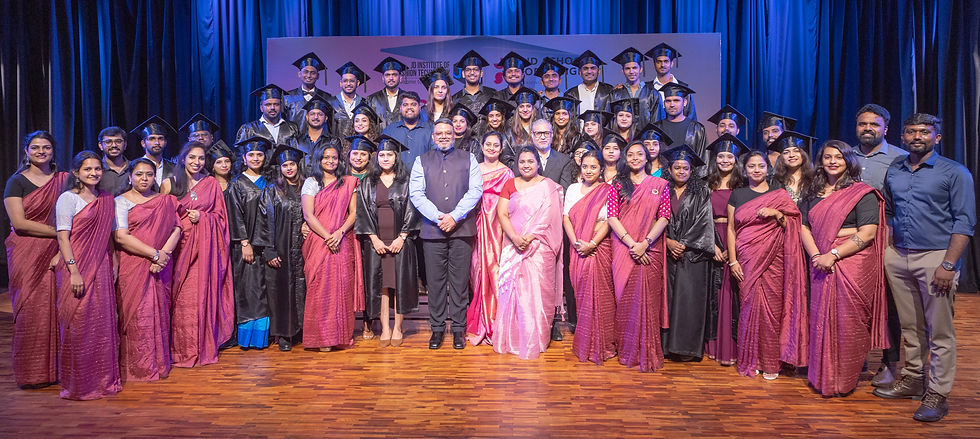Crafting a Sustainable Future: Insights from YFLO's Roundtable on Indian Fashion Heritage"
- Team Stay Featured

- Aug 31, 2024
- 3 min read
The Young FICCI Ladies Organization (YFLO) recently hosted a compelling Roundtable Conversation on Sustainable Fashion at The Quorum Club, Madhapur, in collaboration with #ConsciousEffort. The event, which brought together some of India’s most influential designers and advocates for Indian art and craft heritage, was highlighted in a press note issued by Ms. Ridhi Jain, Chairperson of YFLO.

Esteemed personalities such as Ms. Pinky Reddy (Entrepreneur & Philanthropist), Mr. Gaurang Shah (Textile & Fashion Designer), Mr. Shivam Punjya (Founder of Behno New York), and Ms. Saachi Bahl (Founder of Saahra & #ConsciousEffort) took center stage at the roundtable. Moderated by Ridhi Jain, the discussion delved into the global recognition of India’s rich multicultural craft heritage and artisanship, underscoring the urgent need for sustainable practices in the fashion industry.
The conversation couldn’t have been more timely. Only 1% of all discarded clothing is recycled globally today. Consumers now buy 60% more clothing than they did 15 years ago, but they keep these garments for only half as long. Alarmingly, the average piece of clothing is worn just ten times before it’s discarded. Against this backdrop, the roundtable sought to raise awareness about the critical importance of sustainable fashion, as emphasized by Ridhi Jain.
Ms. Pinky Reddy reflected on her journey, stating, "I became an entrepreneur after joining FLO, which inspired me to start my first business." Her words resonated with the audience, demonstrating the powerful impact of organizations like FLO in empowering women entrepreneurs.
Gaurang Shah, a renowned Textile & Fashion Designer, shared his insights on India’s unparalleled position in the global fashion industry. "The world is looking at India for fashion because nowhere else can you find such a rich variety of handcrafted textiles. Every few kilometers, you encounter different weaves, textures, colors, and designs," he said. Shah also addressed the modern perception of the saree, lamenting that it has become occasion-wear, despite its versatility and uniqueness.
He further discussed the impact of social media on his business, stating, "Instagram has killed 90% of my business and only helped 10%. It has become an adda for copycats." This candid revelation highlighted the challenges faced by designers in the digital age, where originality often falls prey to imitation.
Saachi Bahl echoed similar sentiments, expressing frustration over the lack of appreciation for indigenous crafts within India. "We don’t value what we have, but we go abroad, buy Indian-imported crafts, and feel happy," she remarked, urging a shift in consumer mindset towards supporting local artisans.
Shivam Punjya, Founder of Behno New York, offered a thoughtful perspective on sustainable fashion, stating, "Sustainable fashion to me is about being honest. Fashion creation inherently leaves a footprint, but by being mindful and working within existing systems, we can minimize our impact. We're proud to contribute to showcasing Indian luxury globally, particularly in areas like leather goods, where India is reclaiming its age-old heritage."
All the panelists concurred that Indian fashion is making significant strides on the global stage. Pinky Reddy noted, "The respect and recognition of Indians, Indian craftsmanship, art, and culture is great now."
The collaboration between #ConsciousEffort and YFLO Hyderabad marked a pivotal step towards raising awareness about the importance of celebrating heritage crafts, empowering women artisans, and recognizing the next generation of conscious shoppers as changemakers. Ridhi Jain emphasized that the event provided a unique opportunity to explore the future of luxury with a focus on sustainability.
The roundtable not only highlighted the remarkable journeys of the speakers but also explored actionable strategies to preserve traditional crafts while meeting the growing demand for eco-conscious luxury. This conversation was a vital reminder that sustainable fashion is not just a trend but a necessary shift towards a more responsible and mindful industry.




Comments